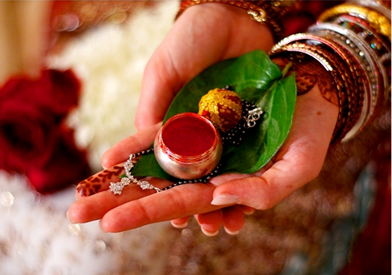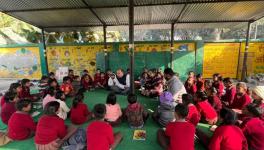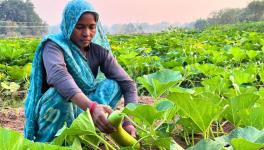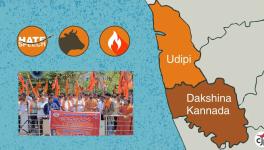Adityanath's Doublespeak on Interfaith Marriages?
The marriage of 4 Muslim girls to Hindu boys in a UP shelter home has led some to question why couples who choose partners on their own are branded as 'Love Jihad' by the CM.

Image Courtesy: Livecities
The initiative to conduct interfaith marriages of orphans is a welcome step in a diverse country like India. But the, Bharatiya Janata Party-led Uttar Pradesh government's recent 'benevolent' initiative of holding a mass-wedding of orphaned women and men from economically weaker sections, and marrying four Muslim girls to Hindu men, has raised questions about the same government branding couples who choose inter-faith marraige, as 'Love-Jihad'.
It may be recalled that last year Chief Minister Adityanath had said 'Love Jihad is a dangerous thing' referring to Hadiya's case in Kerala. The National Investigation Agency has recently declared the case as 'It was Love, No Jihad'. Some critics have also flagged the instance of a girl being abducted from her married house and forced to go through 'Ghar Wapasi' against her wishes in Uttar Pradesh, after Adityanath took over as Chief Minister.
After the Times of India reported the marriage of four Muslim orphan girls to Hindu boys as per Hindu rituals in a mass marriage organised by the district administration at Mahanagar Kalyan Mandap under Adityanath-led Uttar Pradesh government's mass marriage scheme, several Muslim organisation and NGOs have questioned why the said shelter home did not find Muslim grooms. They have also raised the issue of consent and have even alleged a 'secret' bid by the government to try and convert the girls to Hinduism. Along with them, 27 Hindu couple also got married with Hindu boys.
The couples were married last Tuesday under the Special Marriages Act and the next day Hindu rituals, including seven rounds of the sacred fire, were followed. Questions have also been raised about why there was need to hold Hindu rituals once the couples were married under Special Marriages Act. This was something that could have been left to the choice of couples themselves. All the girls have been inmates of the government shelter home at Motinagar since they were six to ten years' old.
Speaking with Newsclick, Naresh Paras, who works on child protection issues since 11 years and is based in Agra, said, "What I have researched in my career so far is that shelter homes in our country do not have facilities to nurture children according to their religion. This is true not only for Hindu shelter homes, but Christian ones as well. The shelter homes do not give freedom to the girls to follow their religion and when they grow up, they are forced to get married wherever the caretaker asks them to."
Recalling a 10-year-old incident, Paras said: "On July 1999, I met a girl on the road in Agra who was 14 years old. The SDM of Agra sent the girl to a women's protection home where girls who were saved from a sex racket or other crimes stayed. Munni, the 14-year-old, was also lodged in the same shelter home. When, after investigation, she confirmed that she was from Jaipur and her father name was Ahmad Khan, the administration forcefully sent her to a shelter home in Kanpur where she later got married to a Hindu boy."
Paras said when local Muslims opposed this move, the administration gave the excuse that they did not find a suitable Muslim boy for her. It's been 10 years since this incident, but the situation remain same. The freedom to choose the religion in shelter homes is absent.
"I have visited Mother Teresa's Missionaries of Charity in Agra where orphans only learn about Christianity, and another shelter home run by the Arya Samaj named -- Shri Madhya Nand Anath Ashram -- where Hindu or Muslim children offer Yagya. Orphans do not have the option to choose their religion," he said, adding that "interfaith marriages are a welcome move if the organisers take the consent of the girls, but if they have been not informed, then it's conversion."
Chhaya Khosla, advocate with Delhi Legal Services Authority, told Newsclick, "A girl, who is an inmate of a children's home, has a right to choice when her life is in question... As per the juvenile justice law also, the opinion of the child is material, keeping in mind her best interest."
Khosla further said that India being a secular country, it was the failure of the administration that they could not find one suitable person in the community for the girls in question.
Get the latest reports & analysis with people's perspective on Protests, movements & deep analytical videos, discussions of the current affairs in your Telegram app. Subscribe to NewsClick's Telegram channel & get Real-Time updates on stories, as they get published on our website.
























